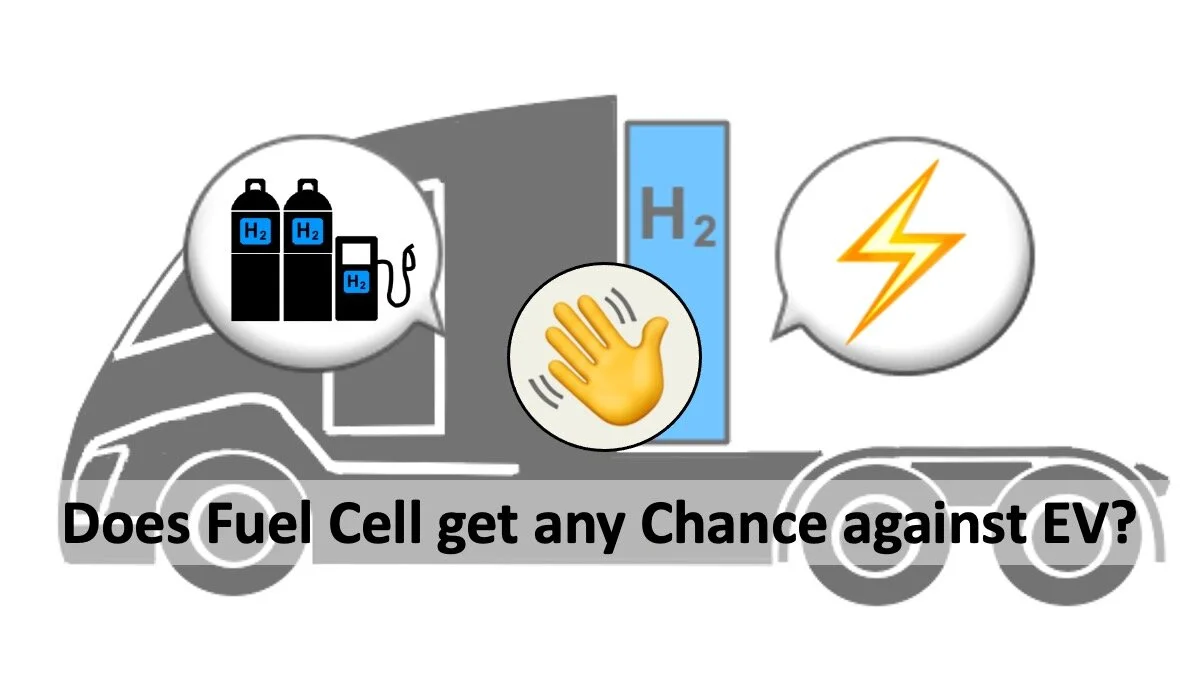Do Fuel Cells have any Chance against EVs?
This article is a summary of a ClubHouse discussion organised on April 14th 2021
➡️ FCEV is actually a family of Technologies that can run on different fuels: not only Hydrogen, but also Ammonia, for example. FCEVs belong to Electric Vehicles as they run an Electric Motor. Even if FCEVs have been developed for many years, their sales remain very limited in 2020, especially in passenger cars when comparing to other Electric Vehicles (EVs)
➡️ We can consider that today we see the 2nd attempt at FC deployment. The 1st attempt was some 10 years ago when legislations tried to tighten pollutant emissions. At this time, cheaper solutions were found in IC Engines and FCs failed to arise because of Technology cost
➡️ Today, it seems unlikely that FC can take over Electric Vehicles for passenger cars. But chances seem better for other applications. Forklifts are a good example where Fuel Cells are today applied with success. City Bus is also an ideal application because it is cheaper to develop a local Hydrogen distribution infrastructure rather than fast charging for large vehicles.
➡️ All applications with long haul or heavy weight (commercial vehicles, planes, boats) have an advantage to use Fuel Cells rather than Batteries because high power and high energy Battery would be very heavy and/or very expensive. Most of Fuel Cell R&D focus on FC gravimetry improvement.
➡️ Paradoxally, in commercial vehicles / marine / aeronautic, the main competitors of FC are not really BEVs but traditional IC Engines that can run on a relatively low TCO. Nevertheless, legislation push to reduce CO2 will change this equilibrium and the question remains as “can IC Engines sufficiently reduce CO2 to cope with legislation?”. In the truck Industry, when CO2 pressure will become too important, a switch to Fuel Cells will become necessary and TCO will probably be advantageous compared to BEVs.
➡️ Fuel Cell Vehicles have the disadvantage that they are much more complex (understand more expensive) to develop than Battery Electric Vehicles. They include not only the Fuel Cell on itself but also a Battery, an Electric Motor (like for any BEV) and an H2 tank, which is a complex technology on its own… It also involves heavy calibration and multiple system optimisation (battery management, cooling management, etc.). This complexity limits the number of start-ups and companies able to develop FC, obliging big truck manufacturers to work together. That is why we see multiple Joint Venture forming (for example, Daimler with VOLVO). These JVs allow reducing development risks but stay relatively limited in data sharing, be it new ideas or developments.
➡️ From a governmental point of view, there is no real consensus to push for Fuel Cell development for several reasons: (1) uncertainty about the distribution infrastructure; (2) clarifications needed about the Fuel used in FC (H2 vs Ammonia for Marine, for example); (3) CO2 pressure not strong enough to justify to abandon the ICE route; (4) Hydrogen (or Ammonia) CO2-credit not proved to be economical viable
➡️ Governments pushing for Fuel Cells are all Asians: Japan and Korea, but also China. For the later, Fuel Cells are not seen as a competitor to BEVs but as a complement to further decarbonise
➡️ Generally speaking, Fuel Cell potential stays limited because the lack of volume manufacturing limit the reduction in cost
➡️ Promotion of the technology for the public is very limited. Because people know very little about Fuel Cells, they do not develop any interest about it. It seems unlikely that Fuel Cells can arise soon if they do not boost their communication strategy as a unified industry

